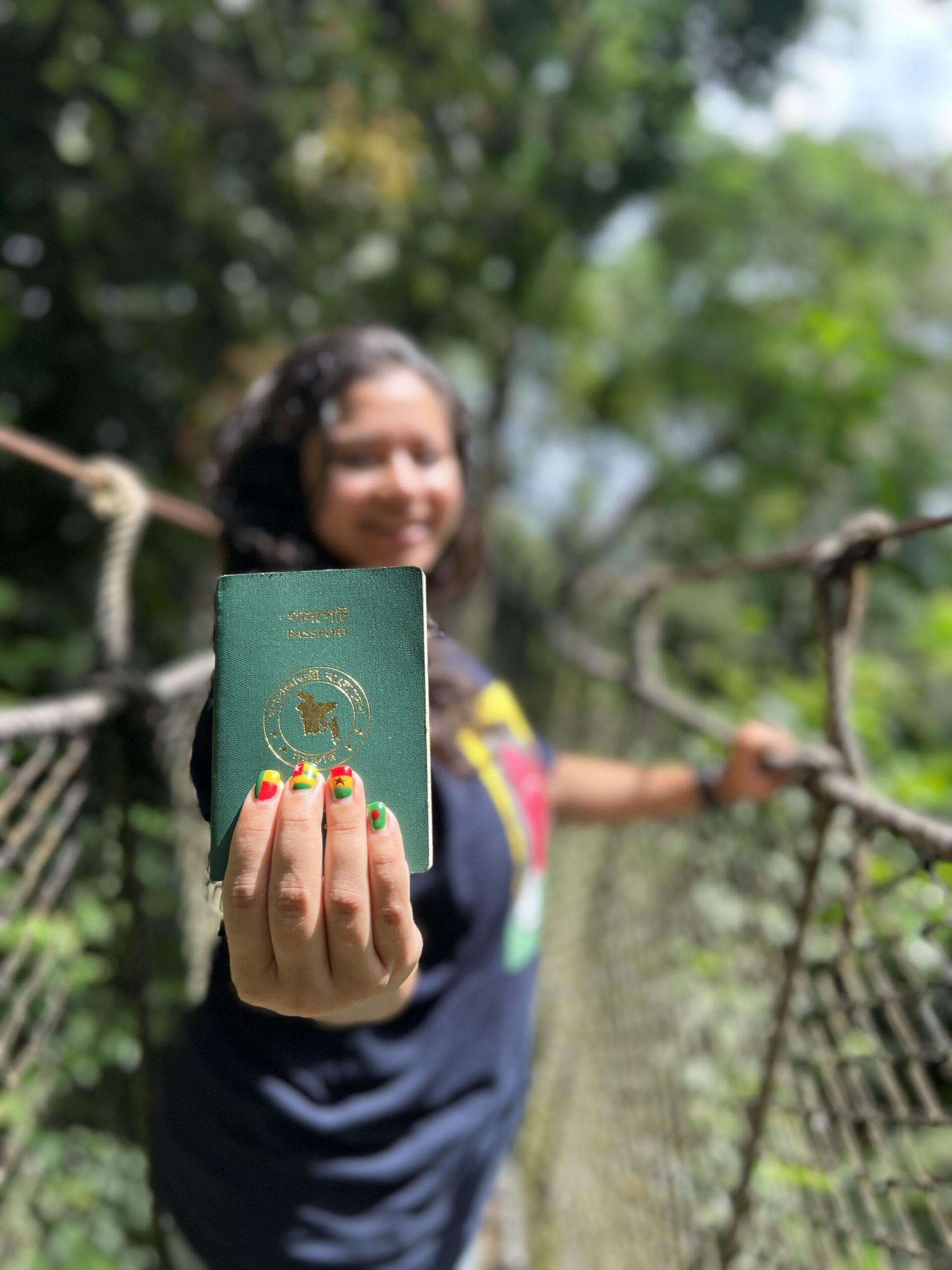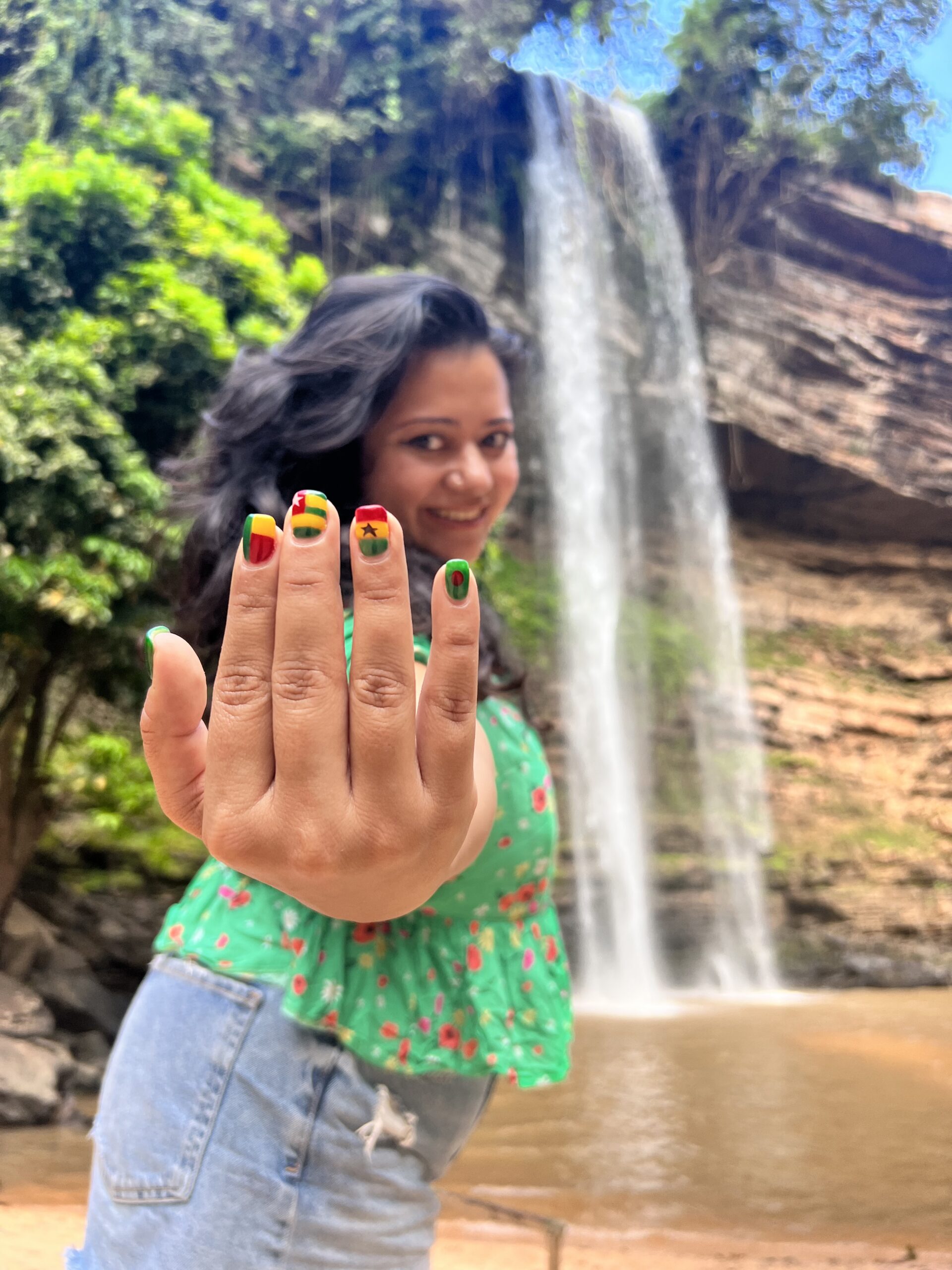
On November 25, 2022, I found myself at the scorching hot border between Togo and Ghana. After handing in my passport at the Togo border, I was stamped out of Togo by a cheerful man who was delighted to receive a Praan Mango bar as a token of gratitude. As I walked out of the border, I encountered some border officials from Togo who were seeking bribes. Reluctantly, I gave them the equivalent of 2 euros in CFA, all that remained with me after indulging in various purchases, including an abundance of Ankara fabric.
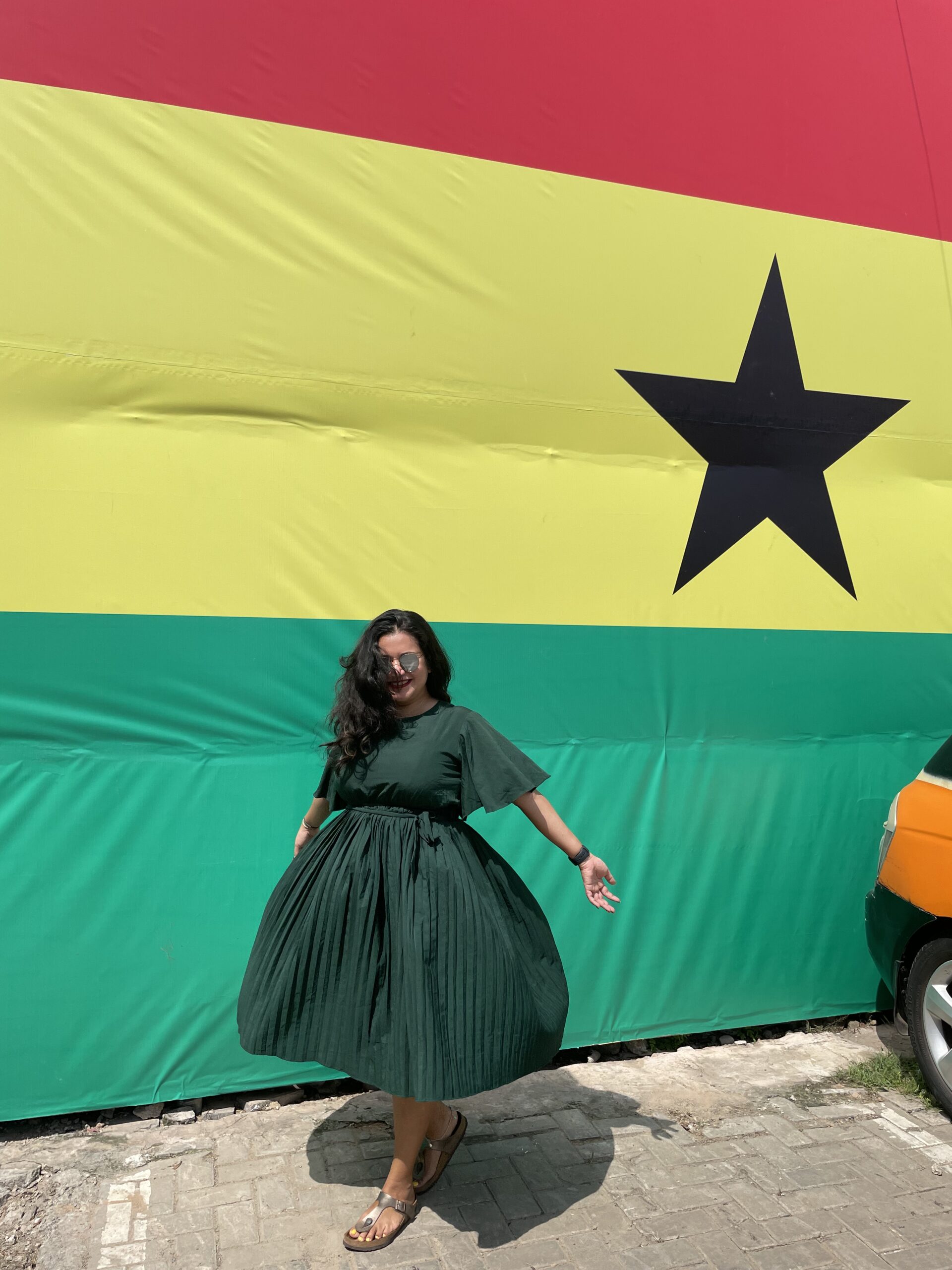
Crossing over to the Ghana side, I was asked to accompany the border agents into a room. Past experiences led me to expect some level of harassment, but to my surprise, this time was different. The friendly border guards found amusement in the fact that I had the Ghanaian flag painted on my nails and that I, a “young and beautiful” (as they put it) girl, was traveling to Ghana alone. With smiles on their faces and flattering words, they warmly welcomed me into the country. As they stamped my passport and handed it back to me, a mix of disbelief and excitement washed over me. The emotions overwhelmed me, and tears of joy streamed down my face as I walked to the bus stop at the border. I had made it to Ghana, my 100th country, with my Bangladesh passport.
Ghana, a stunning country in West Africa, is known for its vibrant culture, breathtaking landscapes, and hospitable people. The bus ride from the border to Accra was straightforward, costing only 80 cedis. Upon arrival, I headed to my accommodation using a ride-hailing service called Bolt and treated myself to my first bowl of Ghanaian jollof rice. Controversial as it may be, I must admit that Ghanaian jollof rice has won my heart. Having lived and traveled extensively across West Africa, I confidently proclaim Ghanaian jollof rice as the best. Each spoonful of fluffy rice bursting with the tanginess of tomatoes, the heat of scotch bonnet peppers, and the umami flavor derived from onga cubes was a delight to the taste buds.
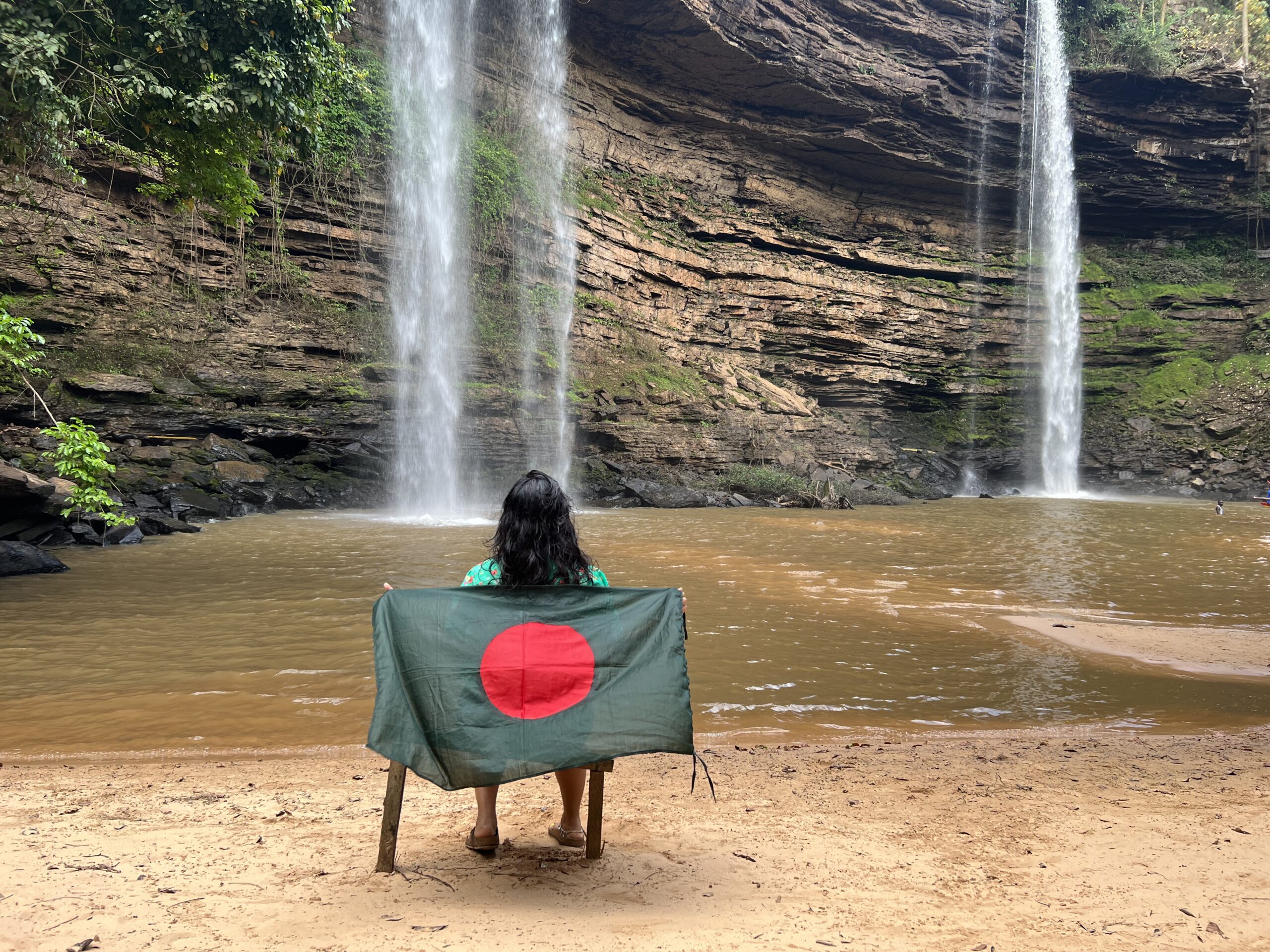
In Accra, I had the pleasure of experiencing the city with Sight n Trips, a tour company founded by two young and vibrant Ghanaians dedicated to showcasing the true beauty of Ghanaian hospitality. My tour guide, Kwame, introduced me to the city’s bustling markets, Independence Square, and the National Museum. The entire tour was filled with fascinating facts, engaging conversations, and Kwame’s infectious enthusiasm for sharing his country’s culture with me. I learned about Ghana’s history as the first black African country to gain independence from its colonizers, symbolized by the green, yellow, and red of the national flag, with the black star representing the country’s aspiration to be the star of Africa. Hence, the Ghanaian football team is known as the Black Stars.
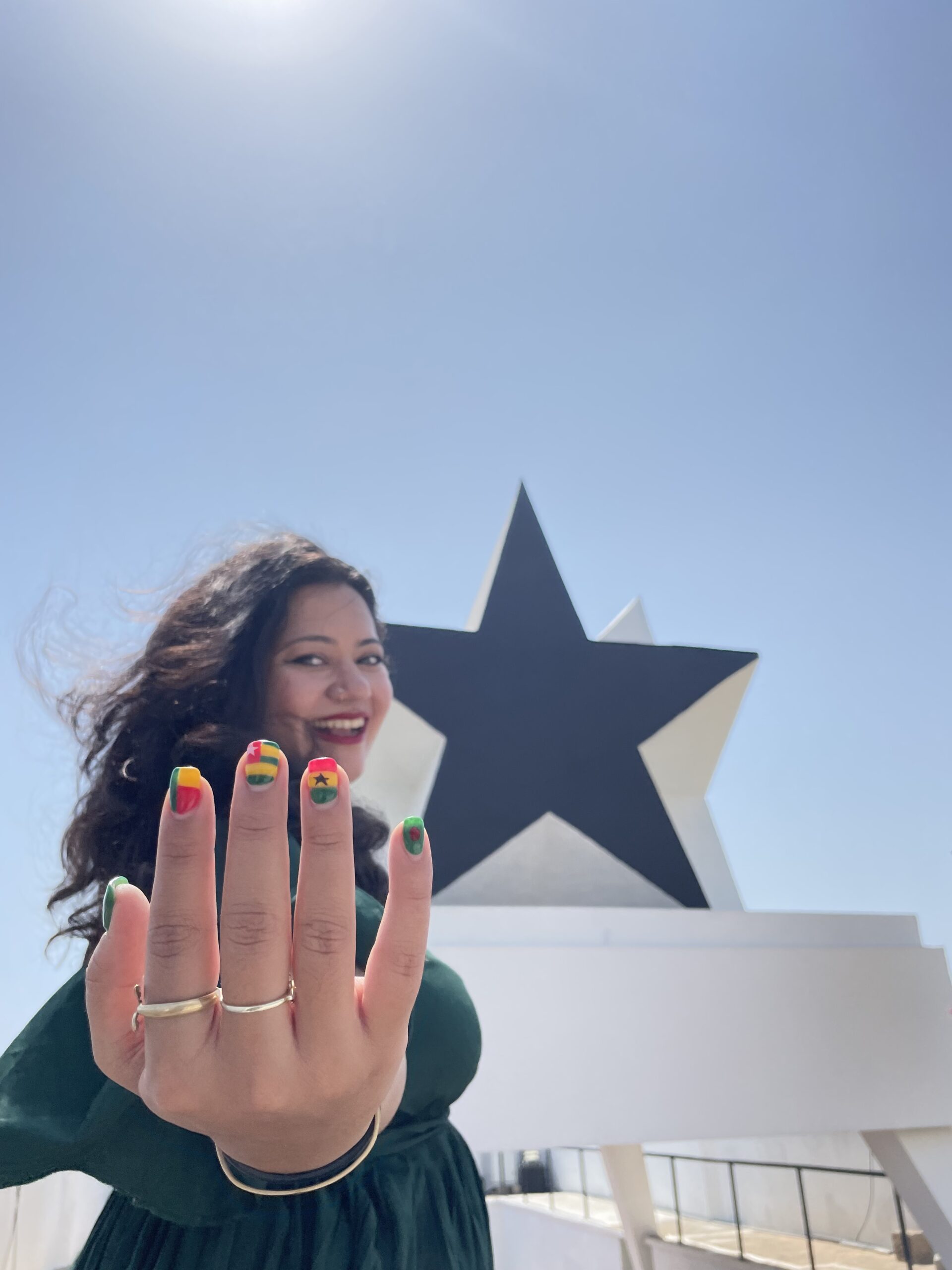
From Accra, I embarked on a day trip to the Boti Falls in the town of Boti, located in Ghana’s Eastern Region. These twin falls, believed to be male and female, provided a refreshing oasis. Swimming in the falls or taking a boat ride offered moments of pure bliss. The beauty and serenity of the falls made the journey well worth it. Later, I ventured to Cape Coast, eager to delve into the brutal history of Ghana imposed by European colonizers. With Bike Adventures Ghana and my knowledgeable guide, Kojo, who was born on a Monday (as indicated by his name), I explored Cape Coast. Our first stop was Kakum National Park, where we marveled at the indigenous plant life and experienced the thrilling canopy walk. Walking amidst the treetops, it felt like floating in the clouds above the lush rainforest. After the canopy walk, we hiked through the forest, immersing ourselves in the breathtaking diversity of plants. At Hans Cottage, we fed crocodiles and enjoyed a meal while waiting for our food. It was there that Kojo introduced me to Ghanaian Palm wine, a refreshing fizzy drink derived from the sap of palm trees, perfect for cooling down during the hot harmattan season. Throughout our time together, Kojo shared stories of the horrifying acts committed by European slave traders and colonizers in Ghana. These tales served as a stark reminder of the atrocities inflicted upon the Ghanaian people. To gain deeper insights, we visited Cape Coast Castle, where I learned in harrowing detail about the conditions endured by enslaved individuals and the way in which slavery was justified using Christianity as a scapegoat. The sight of a church built atop a slave dungeon struck me profoundly, highlighting the hypocrisy of praying to a God who could never condone such inhumane acts. This experience left me in profound distress, and thoughts of returning to Europe weighed heavily on my heart.
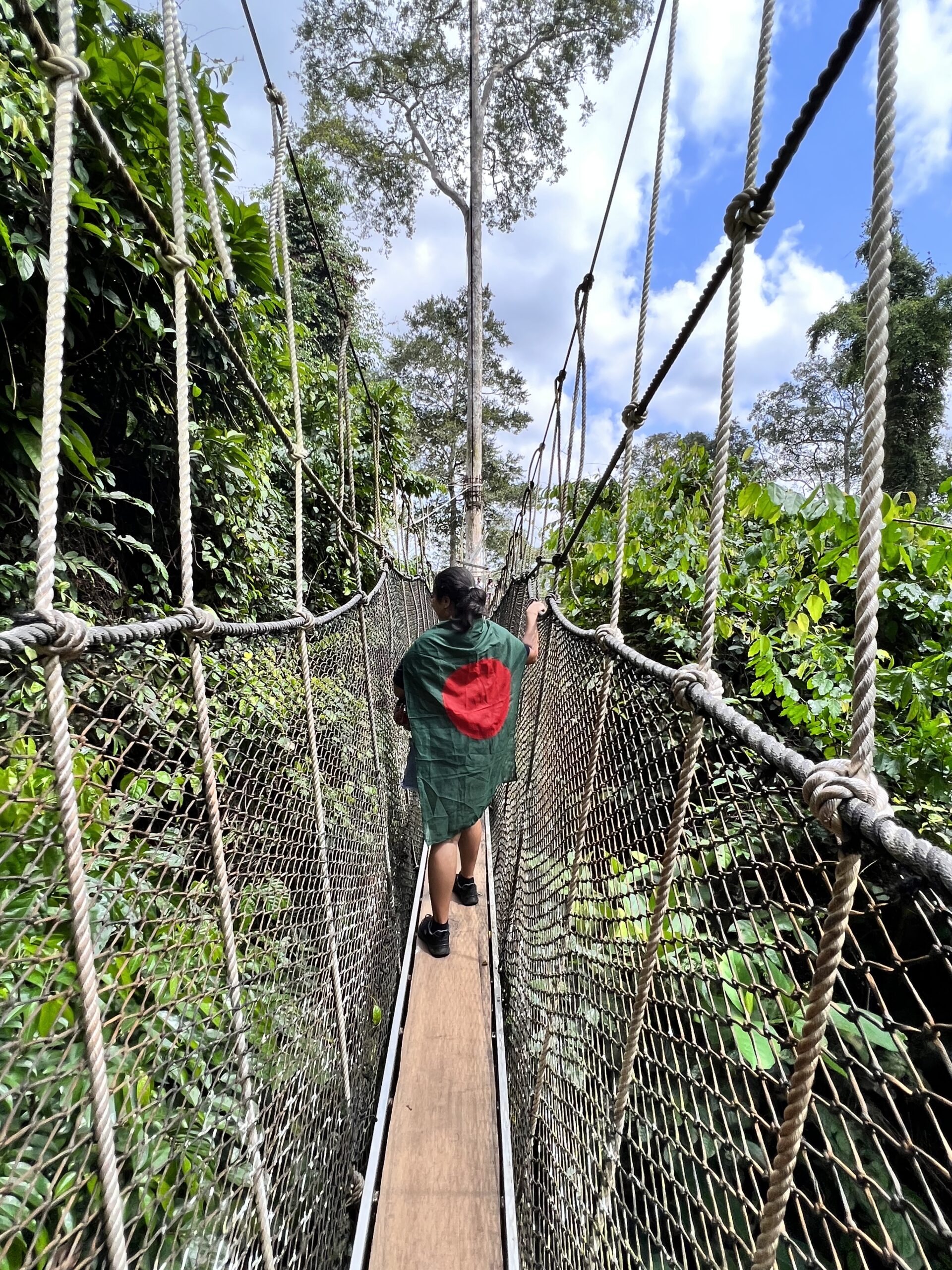
Leaving Cape Coast behind, I discovered a piece of paradise in Anomabo, Ghana, known as Sojourn Cabins. Here, time seemed to slow down, and the rhythmic waves of the ocean dictated a transformative experience. Embracing the spirit of wanderlust, Sojourn Cabins beckoned visitors to embark on a soul-stirring journey, immersing themselves in the rich culture and natural beauty of this captivating land.
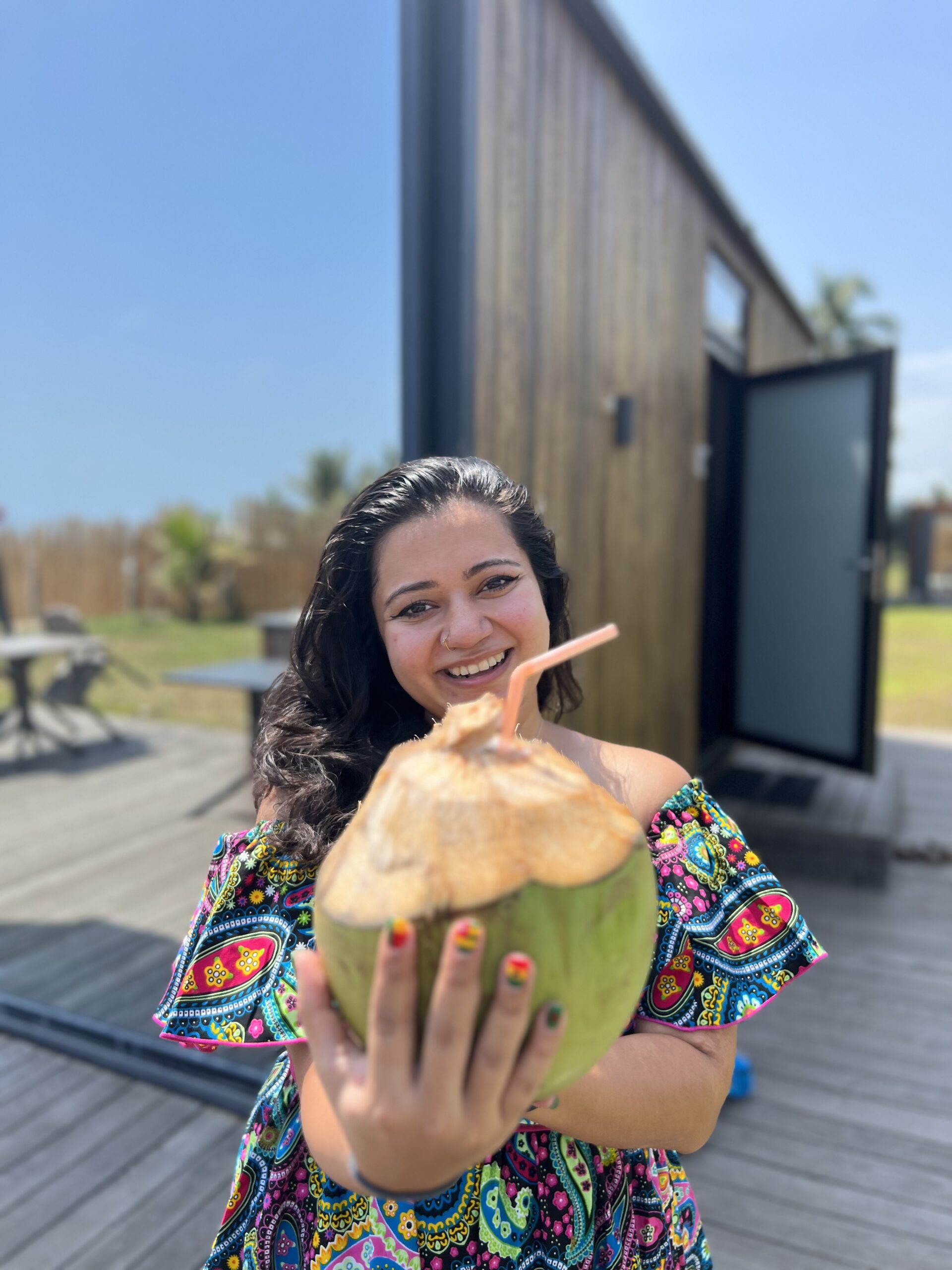
Upon arrival, a freshly plucked coconut greeted me, and as I sipped on it, a sense of tranquility washed over me, carried by the gentle sea breeze. Sojourn Cabins harmonized with the surrounding environment, offering a blend of rustic charm and contemporary elegance that ensured comfort and a genuine connection to nature. Surrounded by swaying palm trees and vibrant tropical flora, each cabin provided breathtaking panoramic views of the azure Atlantic Ocean. Waking up to the soothing sound of waves crashing against the shore and witnessing the mesmerizing hues of sunrise casting a golden glow over the horizon became a daily ritual. The interiors exuded understated luxury, reflecting the local craftsmanship and cultural heritage. The plush bedding, adorned with the finest linens, and the gentle lullaby of the ocean lulled me into a peaceful slumber. The cabins featured spacious en-suite bathrooms where I could indulge in a refreshing rain shower or soak in a handcrafted wooden tub, all while relishing the breathtaking vistas before me.
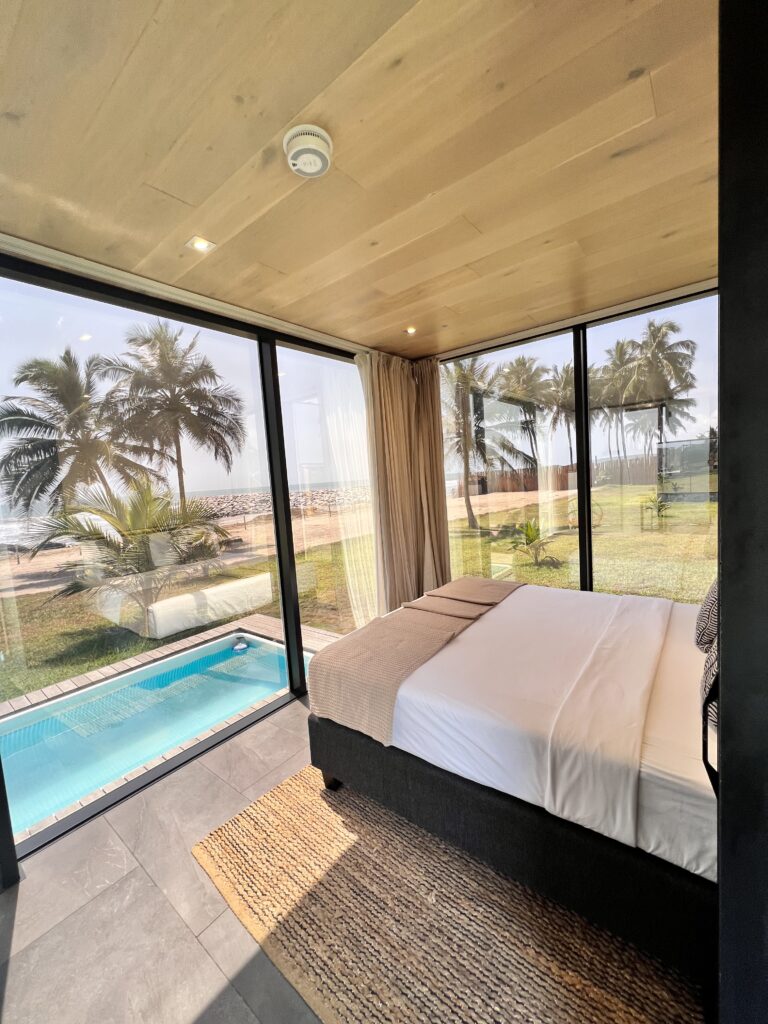
During my stay at Sojourn Cabins, I had the pleasure of reuniting with my friend Hawa. Together, we lounged by the private pool, stretched out on sunbeds, and basked in the sun while catching up on the years that had passed since our last meeting. We were treated to exquisite Ghanaian cuisine personally served by the private chef, Chef Nuel, available for guests at Sojourn. Each morning, we savored breakfast with a view of the Atlantic Ocean and the rustling coconut trees above, experiencing the vibrant flavors of Ghana in every dish. The freshest seafood, infused with aromatic herbs and spices, sourced from local fishermen, tantalized our taste buds. We even had the opportunity to participate in a cooking lesson with Chef Nuel, who taught me how to prepare my all-time favorite West African dish: Ghanaian jollof rice, prepared in the Ghanaian style (please, no debates on this matter).
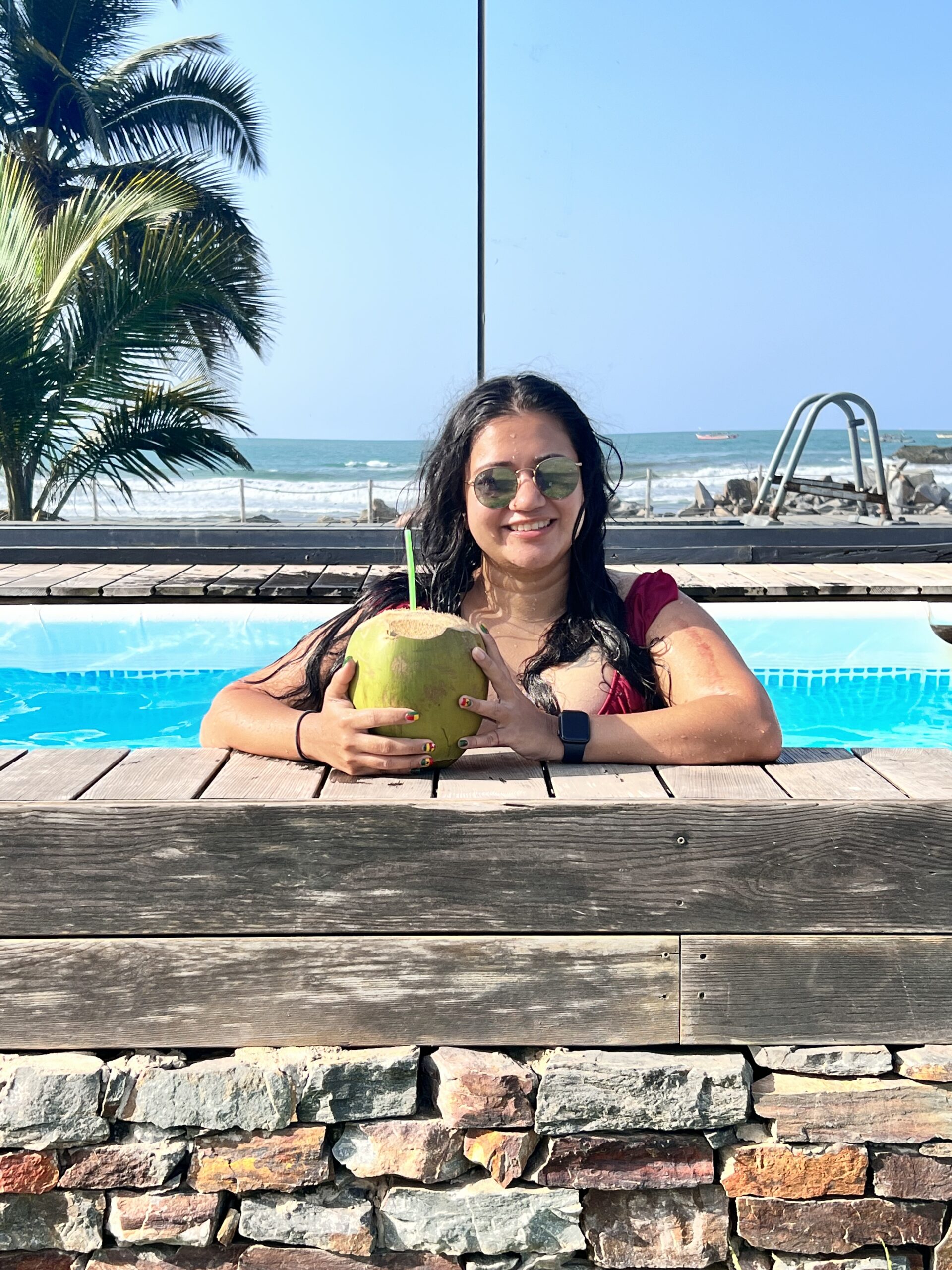
Later in the day, we indulged in a relaxing massage while watching the sunset over the Atlantic Ocean. The day concluded with a private dinner under the starry Anamabo sky, illuminated by a bonfire. It is often said that such moments are curated for romantic relationships, but we must not overlook the power of friendships. As an only child, my female friendships have been my rock, and I could not have been happier to spend those wonderful days with Hawa, reconnecting, rejoicing, and rejuvenating under the Ghanaian sun. Whether one seeks solitude and introspection or a vibrant cultural immersion, Sojourn Cabins offer the perfect sanctuary for a transformative journey. Allow the enchantment of Anamabo to seep into your soul as you create lasting memories and forge a profound connection with this extraordinary land and its warm-hearted people.
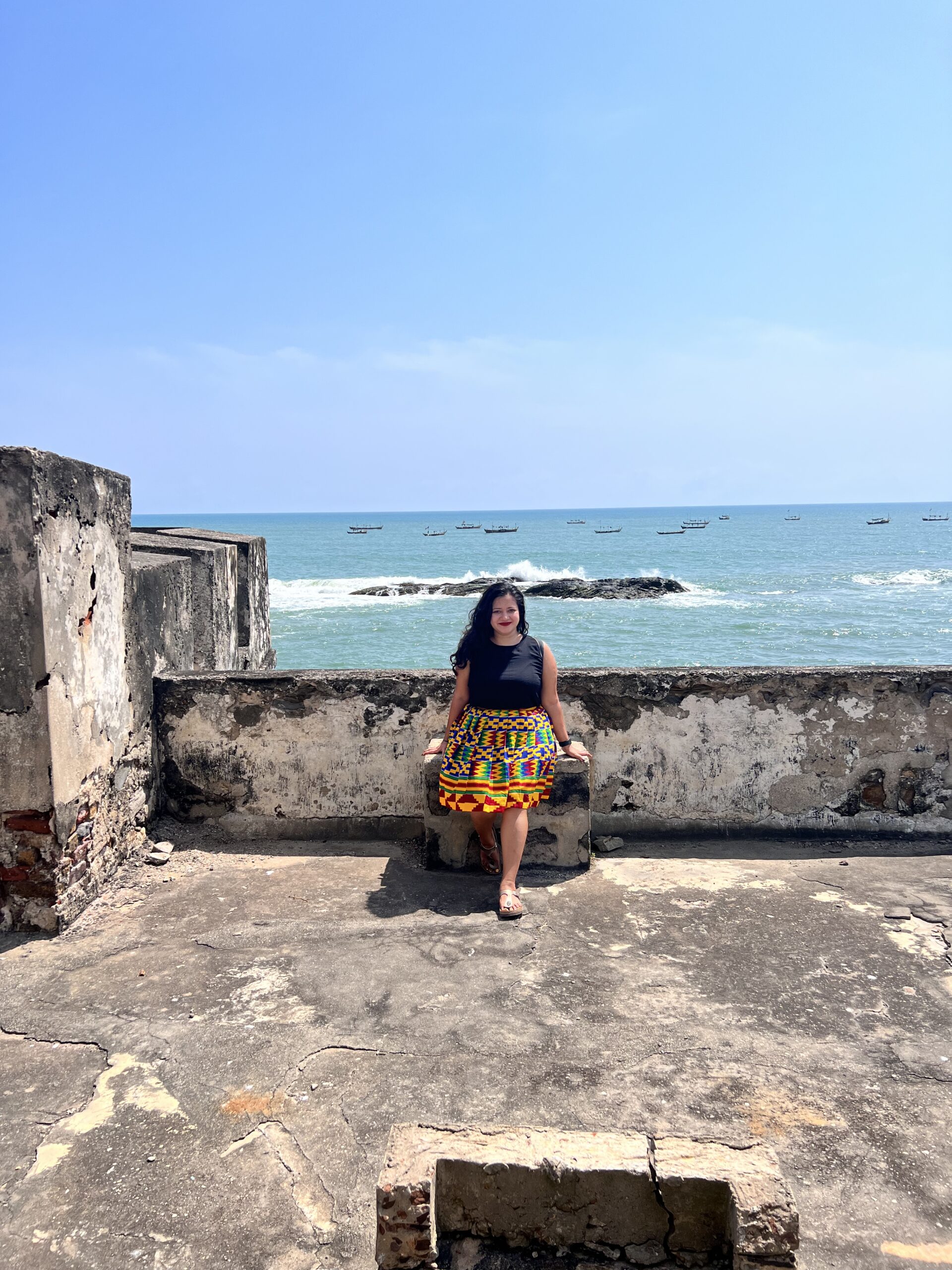
On our second day, we embarked on a tour of Anamabo, delving into its rich history and captivating landmarks. We visited the historic Fort Williams, where we learned more about the brutal history of the slave trade and colonization imposed on Ghanaians by the British and other Europeans. It was a sobering moment as we relearned the horrifying ways in which people harm one another, all in the name of religion and race.
During my taxi ride back to Accra and subsequently to the airport, my thoughts dwelled on the terminology we use when speaking of countries that endured slavery. Often, we regard it as a part of history solely belonging to those who were enslaved, disregarding the slave traders who perpetrated these horrifying acts. We refer to “black history” as if it began and ended with the slave trade, overlooking the rich heritage preceding those brutal moments and the fact that these atrocities occurred due to the conquest and destruction of entire civilizations by Europeans. In silence, my heart wept for the millions of lives and futures taken from individuals who continue to suffer due to the inhumane injustices committed in those lands. I felt deeply uncomfortable returning to live a life in Europe, knowing that I now benefit from structures built on the backs and resources of those who were once enslaved in these lands.
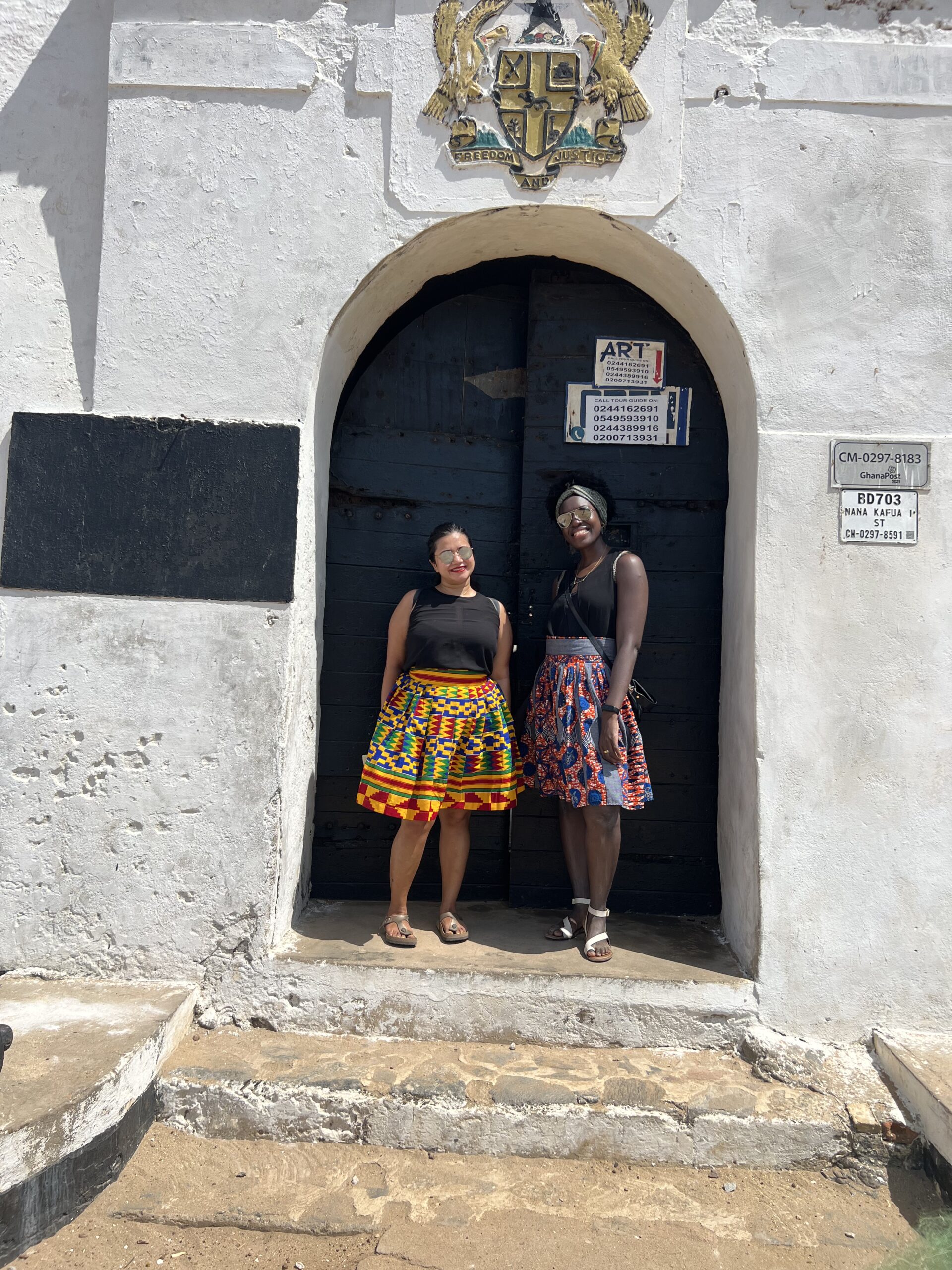
Throughout my trip, I was profoundly struck by the friendliness and hospitality of the Ghanaian people. Everywhere I went, warm smiles and genuine kindness greeted me. It was evident that Ghanaians take immense pride in their country and are eager to share its beauty and culture with visitors. As I sat in the airport, waiting to catch my flight back to Germany, I reflected on the warmth I had experienced in Benin, Togo, and Ghana over the past few weeks. With a tear in my eye, I bid farewell to this remarkable country. Ghana exceeded every expectation I had for my 100th country, and I felt incredibly fortunate and grateful for the warm embrace it had extended to me.
